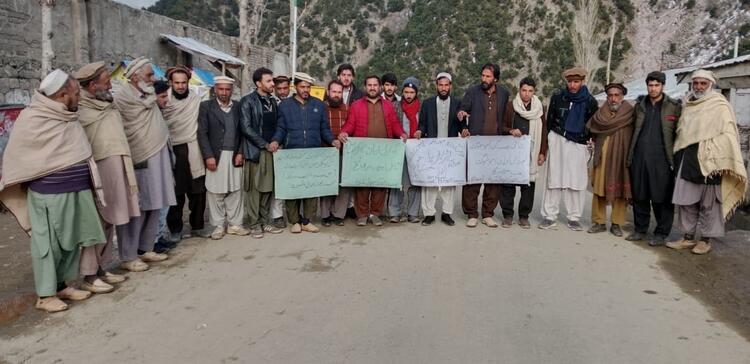
The Gawri Community Development Program observed International Mother Language Day in five villages across Swat Kohistan and Dir Kohistan.
Report by: Hayat Muhammad (Media and Communication Officer GCDP)
Date: Feb 21, 2025
In Kalam, a seminar was held to discuss ways to preserve and promote the Gawri language. Local writers, intellectuals, scholars, and youth participated. The goal was to develop strategies to address the challenges facing the Gawri language and work towards its promotion on International Mother Language Day. Maulana Saif-ur-Rehman, Hafiz Ibn Rozi, Kalam Youth Movement President Abdullah Shehzad, Dr. Muhammad Rahman, and other local youth attended.
The GCDP Program Manager Muhammad Nabi and Gawri language researcher and writer Abdul Ali reviewed local research, writing, and technology efforts related to the Gawri language, and devised a plan to advance the language using communication technology. Participants decided to launch a campaign to incorporate the Gawri language into the education curriculum, considering the Peshawar High Court decisions and provincial government bills. They said a grassroots movement and government action are urgently needed. Researchers and writers emphasized that the loss of a language means the loss of its associated history and culture. Until now, locals have been working on their languages with their own resources, but the question remains what practical steps the government will take for these endangered indigenous languages on International Mother Language Day.
Utor: Another event was held in Utror Valley where teachers from government and private schools, local poets, writers, and authors participated. Salim Khani, a teacher at the Government Primary School in Gaal, moderated the event. Poets presented their verses in their mother tongue. Writers praised the modern technology provided by GCDP, such as Android and computer keyboards, and the inclusion of Gawri in AI, stating that writers must keep pace with technology. They said using technology in their mother tongue would benefit writers and authors, and that writing in the local language could raise public awareness of local issues.
Thal Kumrat: a traditional jirga held that focused on the Gawri language and culture. Jirga Elder Malik Gul Sher stated that the educational curriculum in other languages is causing a decline in education in their areas. Children barely complete their education in Pashto, Urdu, or English by 10th grade, as they have to focus solely on language until matriculation, making it difficult to understand basic concepts. He urged local youth and elders to work together to promote Gawri language and culture.
Kalkot: A seminar was held in Kalkot Village, Upper Dir District, with Irfanullah as the moderator. The event was attended by local jirga elders, religious scholars, poets, authors, and writers. The elders expressed their concerns, noting that the Gawri language is facing severe endangerment in Kalkot. Consequently, they emphasized the need to accelerate collaborative efforts with the GCDP to speed up writing and compilation work in the language. Simultaneously, the elders stressed the importance of local youth being engaged and concerned about their mother tongue. During the seminar, poets recited their verses, and authors discussed their literary works.
Jiyar: A seminar was organized by youths, where local poet Rahim Khan Benet presented his poetry. Scholars emphasized the importance of the Gawri language and regional identity. Following the seminar, a walk was led by local students Saleem and Baseer. Participants carried banners demanding recognition of the rights of mother languages and local identities. The seminar and walk generated significant awareness among the people of the area, as were covered by local media.
The events organized by the Gawri Community Development Program in five villages have been widely reported in local newspapers. At the grassroots level, these programs have catalyzed a new movement initiated to safeguarding the Gawri language and raising consciousness about the importance of mother-tongue education. Such community-driven initiatives underscore the vital role of local stakeholders in preserving linguistic pluralism and promoting cultural values and norms, especially in regions Like Kalam and Upper Dir where indigenous languages confront with the marginalization.